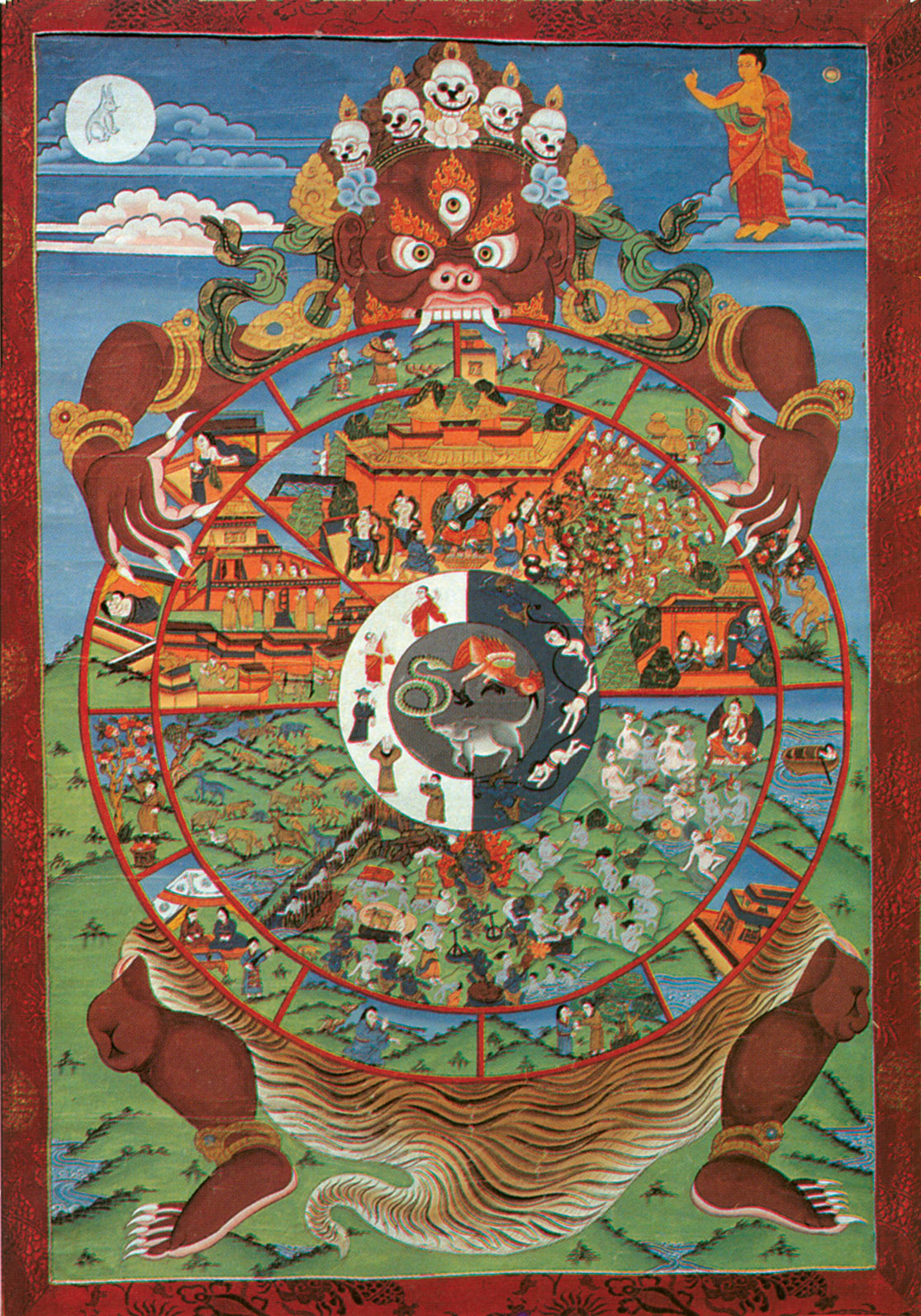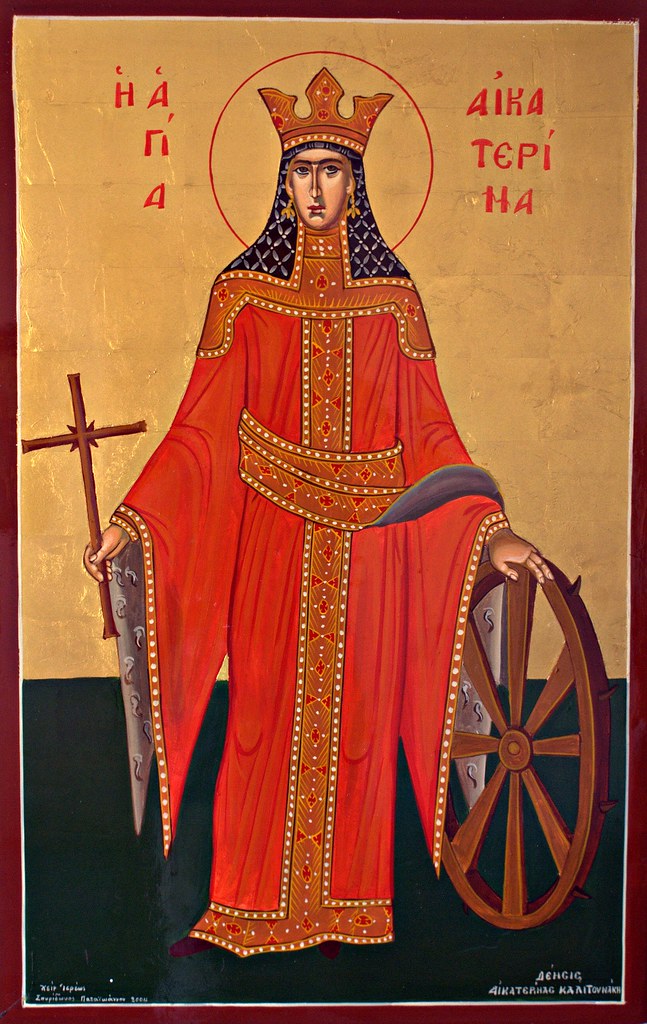To revolutionize means to generate a complete rotation, to change the entire orientation of the subject, whether it is society or the self.
Revolution, via Old French from Late Latin revolūtiō, from Latin revolvere to revolve.
- A turning or rotational motion about an axis.
- A single complete cycle of such orbital or axial motion.
- The overthrow of one government and its replacement with another.
- A sudden or momentous change in a situation: the revolution in computer technology.
- A far-reaching and drastic change, esp in ideas, methods, etc
- Movement in or as if in a circle.

The Vedic and Buddhist teaching of the wheel of Samsara shows the incessant repetitions of the soul through the realms of life and death.
The 6 sections of the wheel are the worlds of the gods, demi-gods, humans, animals, hungr ghosts, and hell. The soul moves through these realms in each succesive life, gaining experiences and taking action that dictate the circumstances of the next rebirth.
The hub of the wheel contain three creatures representing the ultimate forms of attachment: desire, hatred, and ignorance. Because of these attachments at the core, the wheel always continues to spin.
Only by overcoming attachment through renouncing and dissolving one’s own desire, hatred, and ignorance can freedom from the wheel be possible.
Holding this entire wheel is the god Yama, Lord of Death. He is the master of the wheel of life and death, and so it is necessary to conquer death itself to escape the wheel.
The revolutions of the wheel imply a repetition that results in a stagnancy. The soul is reborn in a different realm depending on the karmic merits and/or entanglements. The memory of the previous existence is latent and so the lessons are not learned of how to overcome this predicament. The relative novelty of each new rebirth distracts the soul’s consciousness and the cycle begins again.
Only with introspection and renunciation can the soul finally leave this wheel.
When the third century Alexandrian Saint Catherine was to be martyred on a torture device known as a breaking wheel, she touched the wheel and it shattered. This is symbolic of someone who has transcended the wheel of samsara, who was no longer beholden to the turnings of pain and pleasure.
In other words, Saint Catherine acheived, in a real and symbolic way what many other masters have acheived, a complete internal psychological and spiritual revolution.
Samael Aun Weor gives the keys to this psychological and spiritual revolution with books such as Treatise of Revolutionary Psychology, Revolution of the Dialectic, and Revolution of Beelzebub. The revolution of the consciousness is to perceive reality as it is, without the conditioned ego, without desire, without identification and attachment.
The revolution of the consciousness is to know that society is an extension of the individual, and if we ever want to create positive change in this world we must self-inquire and be willing to radically let go of egoism.
This is only possible by remembering the inner Being, our internal and intimate God-Father and God-Mother.
When we revolutionize our psychology we surrender to the will of our Being and let go little by little of our own self-interest and selfish desires. We gain humility through an understanding that we do not have all the answers, that we cannot control others behavior, and that ultimately freedom comes from responsibility.
Contrast this to the limited logic of political or social revolution. Everything is externalized with the efforts going toward changing other people. A political revolution will tear down a corrupt leader or insititution, only to replace it with an equally corrupt leader or institution.
When the ego is alive and well within our psychology, when we are not examining ourselves and reunouncing anger, fear, ignorance, greed, and lust, then how can we presume to know how to best run the world?
A political or social revolution may feel exhilerating in the short term, but it merely spins the wheel once again, inviting endless repetitions of the same sufferings.
Revolutionary psychology requires courage, faith, and patience. We must remember that we are just a small part of the whole, and yet our glimpses of the light of our own consciousness have the possibility of lighting the way for others.

